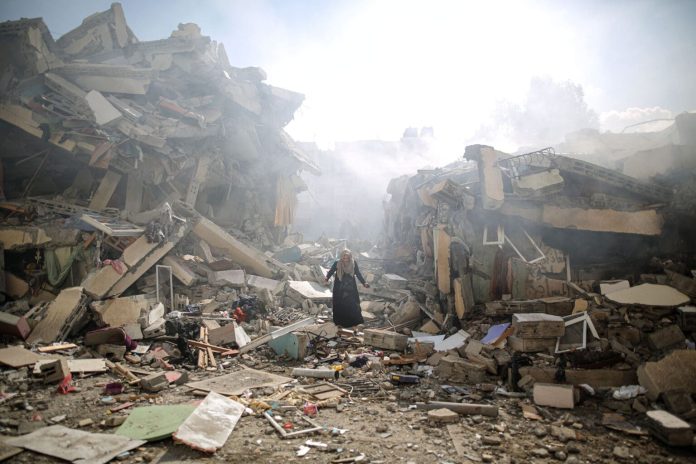– Mohammed Talha Siddi Bapa
The White House has unveiled a 20-point plan for Gaza that promised a quick ceasefire, hostage releases and rapid reconstruction. Israeli Prime Minister Benjamin Netanyahu publicly backed the package and several regional and Western governments welcomed it. But there is a simple political fact at the heart of this plan: it was designed without meaningful Palestinian agreement – and especially without Hamas, the main power in Gaza. That absence matters more than any promise of roads or aid. (Reuters)
What the plan actually does
In plain terms the proposal ties reconstruction and a ceasefire to several hard conditions: Hamas must disarm; hostages must be returned; and Gaza would be run for a time by an interim, technocratic authority overseen by an international board – names like Tony Blair were even floated for managerial roles. The White House presented these as fast remedies. But the design hands control to outside powers rather than to the people who live in Gaza. (Reuters)
Who is left out – and why that breaks the plan
Hamas, the dominant political and military actor in Gaza, was not a co-author of the plan and, according to reporting, had not even received the full proposal before it was presented publicly. Forcing a party to disarm and then excluding it from political life is not negotiation; it is capitulation by one side under pressure from the other. A settlement imposed this way has little legitimacy where it counts: among Gaza’s people. (Reuters)
Why “rebuild first” is not the same as “justice first”
The plan promises humanitarian relief and reconstruction – things people badly need. But rebuilding homes and hospitals without addressing the core political grievances (control of territory, borders, accountability for wartime actions, and real political representation) is like plastering a cracked wall while leaving the foundation broken. Reconstruction under foreign trusteeship can make life a little easier in the short term, but it does not stop the anger caused by dispossession, killing, and humiliation. Critics have warned the details and timelines in the plan are vague and that the core political questions remain unanswered. (Al Jazeera)
The imperial logic beneath the humanitarian language
Radiance readers will recognise the pattern: powerful states offer relief on condition that the political shape of recovery preserves their strategic interests. When international funds and contracts pass through networks controlled by external powers, economic recovery can become a tool of influence instead of empowerment. That is why many observers call this approach “peace by privilege” – peace administered by the powerful, not chosen by the governed. (Reuters)
Three practical reasons this plan is unlikely to last
- No consent, no legitimacy. Orders from outside do not bind the population inside. A government imposed without broad local consent will be seen as a client regime. (Reuters)
- Security cannot be bought by disarmament alone. Disarming one side while keeping the other side’s control of force or borders simply shifts the balance; durable security follows from a political settlement, not from enforced disarmament. (Al Jazeera)
- Weak legal footing. Sidestepping the UN and established international mechanisms weakens the agreement’s legal and diplomatic standing, creating rival centres of legitimacy. (Reuters)
What should be done instead (short, practical demands)
If the international community truly wants peace that lasts, the priorities must be reversed: justice first, reconstruction second. Concretely:
- Any ceasefire and rebuilding must be negotiated with legitimate Palestinian representatives (including ways to involve Hamas or other local actors in a credible political process). (Reuters)
- Create independent, internationally supervised mechanisms to investigate alleged war crimes and to provide redress for victims. Accountability is a condition for reconciliation. (Al Jazeera)
- Link reconstruction funding to local leadership, transparent contracts, and a clear roadmap toward Palestinian political agency over Gaza’s institutions and borders. (Reuters)
Short closing – for Radiance readers
A fast “deal” that rebuilds buildings but not rights will not end the politics that produced the disaster in the first place. Peace built on coercion, not consent, becomes a short pause between fights. If we want a genuine end to violence, we must insist that justice, not power and patronage, leads the way.




